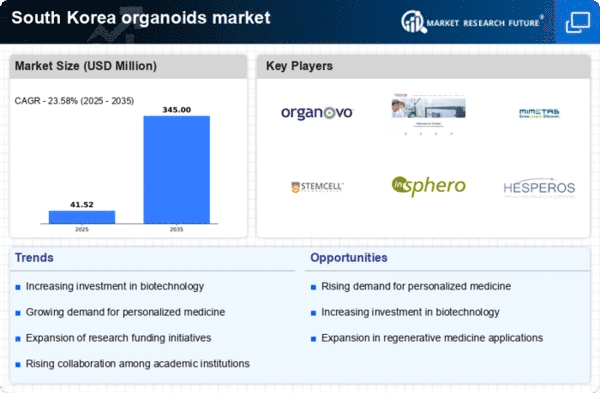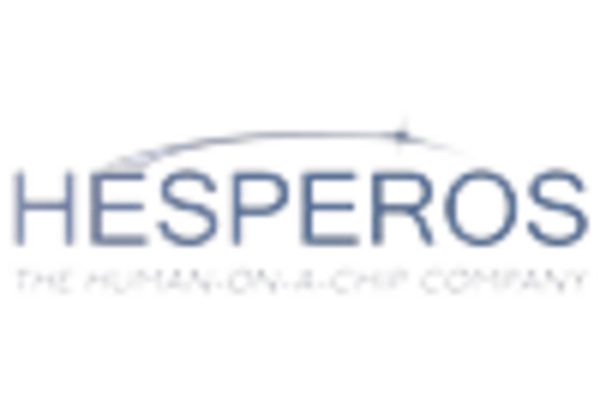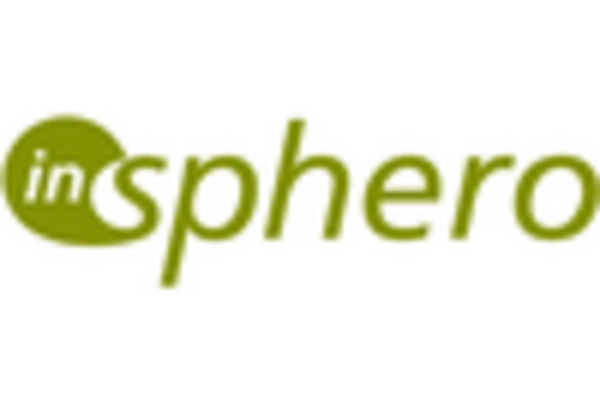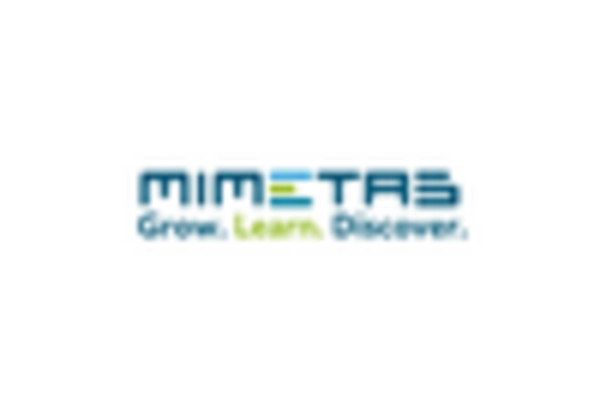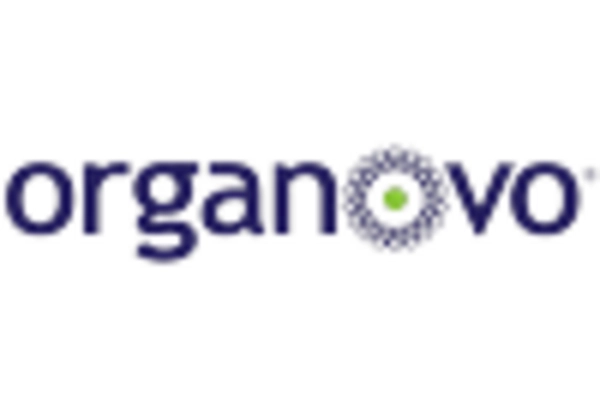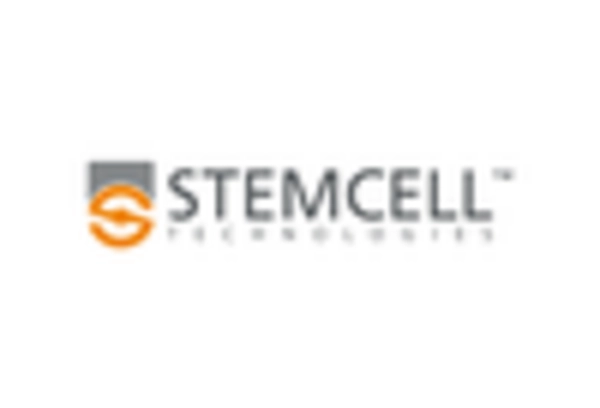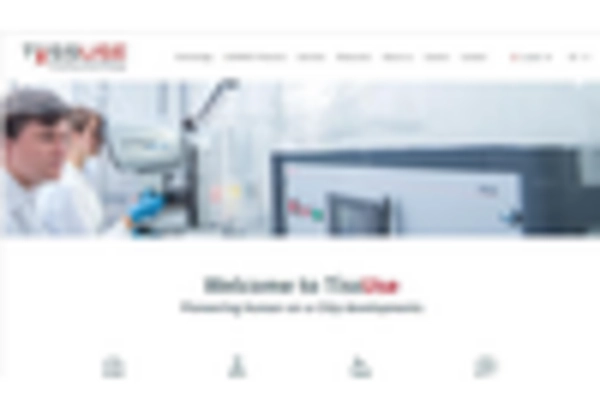Growing Focus on Disease Modeling
The growing focus on disease modeling is a key driver for the organoids market in South Korea. Researchers are increasingly utilizing organoids to replicate human diseases in vitro, allowing for more accurate studies of disease progression and treatment responses. This trend is particularly relevant in the context of chronic diseases such as cancer and neurodegenerative disorders, where traditional models often fall short. The market is expected to expand as more research institutions adopt organoid technology for disease modeling, with projections indicating a potential market growth of 20% by 2026. This emphasis on realistic disease models is likely to enhance the utility of organoids in both academic and clinical settings.
Advancements in Stem Cell Research
Advancements in stem cell research are significantly influencing the organoids market in South Korea. The ability to derive organoids from pluripotent stem cells has opened new avenues for studying complex biological processes and disease mechanisms. This progress not only enhances the understanding of human development but also facilitates the creation of disease-specific organoids for research and therapeutic purposes. As a result, the market is witnessing increased investments in research initiatives, with funding levels reaching approximately $200 million in 2025. These advancements are expected to drive the adoption of organoids in various applications, thereby expanding the overall market landscape.
Rising Demand for Personalized Medicine
The organoids market in South Korea is experiencing a notable surge in demand for personalized medicine. This trend is driven by the increasing recognition of the need for tailored therapeutic approaches that cater to individual patient profiles. As healthcare providers and researchers seek to enhance treatment efficacy, organoids serve as a pivotal tool for drug testing and disease modeling. The market is projected to grow at a CAGR of approximately 15% over the next five years, reflecting the growing reliance on organoids for personalized therapies. This shift towards individualized treatment regimens is likely to propel the organoids market, as stakeholders invest in innovative solutions that align with patient-specific needs.
Regulatory Support for Innovative Technologies
Regulatory support for innovative technologies is playing a crucial role in shaping the organoids market in South Korea. The government has implemented policies aimed at fostering research and development in biotechnology, particularly in the field of organoids. This supportive regulatory environment encourages collaboration between academic institutions and industry players, facilitating the translation of research findings into practical applications. As a result, the organoids market is likely to benefit from streamlined approval processes and increased funding opportunities, which could enhance the pace of innovation and commercialization in the sector.
Increased Collaboration Between Academia and Industry
Increased collaboration between academia and industry is significantly impacting the organoids market in South Korea. Partnerships between research institutions and biotechnology companies are fostering innovation and accelerating the development of organoid-based applications. These collaborations often lead to the sharing of resources, expertise, and funding, which can enhance research outcomes and expedite the commercialization of new technologies. As a result, the organoids market is likely to see a rise in novel products and services, driven by the synergy created through these partnerships. This collaborative approach is expected to contribute to a more dynamic and competitive market landscape.


